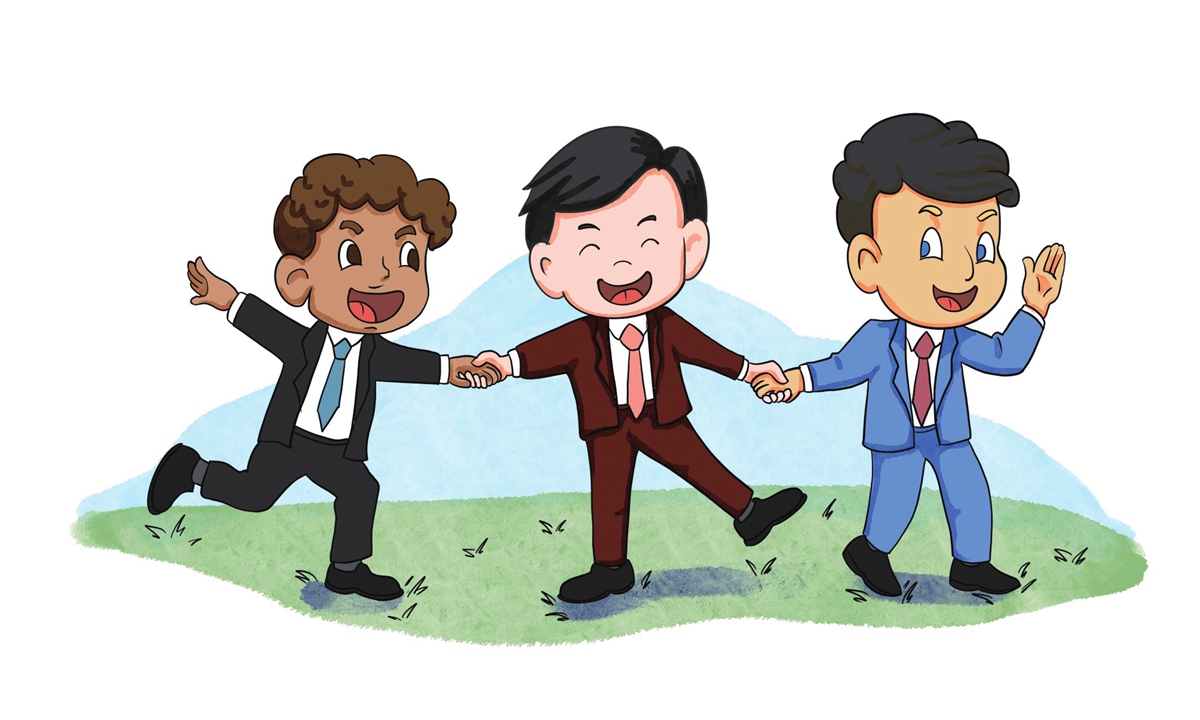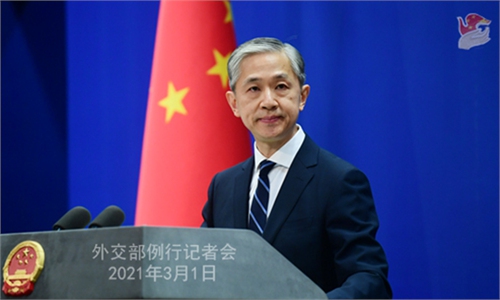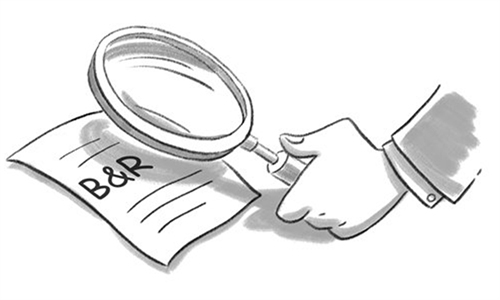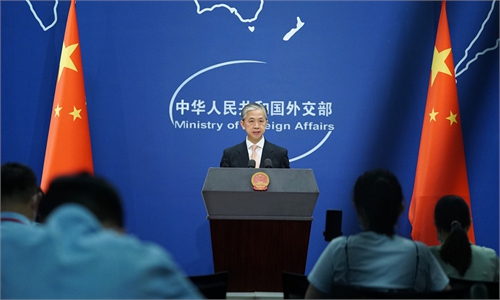COMMENTS / EXPERT ASSESSMENT
Call for China to boost role in G20 debt relief politically driven

Illustration: Tang Tengfei/GT
Right before the G20 finance ministers' meeting on July 9-10, at which G20 finance officials are set to review progress on the issue of global debt amid growing alarm about a looming debt crisis, some US politicians again did not forget to take the chance to shift the blame to China, unreasonably urging China and the private sector to "boost participation in G20 debt response," according to the Reuters.
The report said the US was urging China to participate more fully in the G20 Debt Service Suspension Initiative (DSSI), or debt freeze.
It has become a force of habit for Western media outlets to hype China topic on the eve of major international conferences. Western officials, think tanks and organizations habitually cook up materials to point their finger at China with a series of clichés including "China influence, debt trap, and China threat." Putting excessive demands on China or slandering China on the debt issue is nothing more than the US playing politics.
In order to restore the damage caused by the Trump administration's withdrawal from international organizations to the US image in the global governance system, the Biden administration is trying suppressing and containing China by any means necessary. Trying to hinder China's mutual beneficial cooperation with other developing countries, Washington is taking measures in the following three ways:
Firstly, to rival the China-proposed Belt and Road Initiative (BRI). At the Group of Seven (G7) meeting last month, the US and its allies sought to counter China by offering developing nations an unrealistic infrastructure plan known as the Build Back Better World (B3W) initiative.
Second, to launch an attack campaign against China's investments and projects in other developing countries. By hyping a so-called debt trap diplomacy theory, the West is launching baseless accusation that "China is exerting influence on other sovereign nations through debts."
Third, to make excessive demands on China that is beyond the scope of China's due responsibilities, and slander China afterwards. Using a more technical approach, the US and the international institutions controlled by the US have tried to make China shoulder bigger responsibility through plans like debt restructuring.
However, the US' latest call for China to widen involvement in the G20 debt relief initiative has apparently missed the point. When urging China to boost participation in G20 debt response, the US has clearly neglected the fact that China is the largest G20 country in terms of the amount of debt relief implemented last year. China has fully implemented the low interest rate initiative and provided more than $1.3 billion in debt relief since G20 launched DSSI in last April to alleviate debt difficulties caused by the COVID-19 pandemic.
Refuting baseless accusation on debt alleviation issue, a spokesperson of China's Foreign Ministry said on Wednesday that China has fully implement the G20 DSSI and positively support the extension of the initiative to the end of the year. Relevant non-official financial institutions in China have also taken actions based on the initiative.
In comparison to China, the assistance or debt relief from Western countries to developing countries is more verbal, and lacks tangible benefits. The US' direct investment in Africa has seen consecutive decline over past few years. After a peak in 2014, foreign direct investment (FDI) in Africa from the US dropped to $43.19 billion in 2019, according to business data platform statista.com.
In terms of providing public products, China has backed words with actions. Yet Western investment always comes with a political strings attached combined with a poor record when it comes to delivery. Recently, an increase number of political leader and media outlets in Africa refute the West's "debt trap diplomacy" accusation against China. These countries know well who their true friends are.
The author is director of the institute of developing countries at the China Institute of International Studies in Beijing. bizopinion@globaltimes.com.cn



